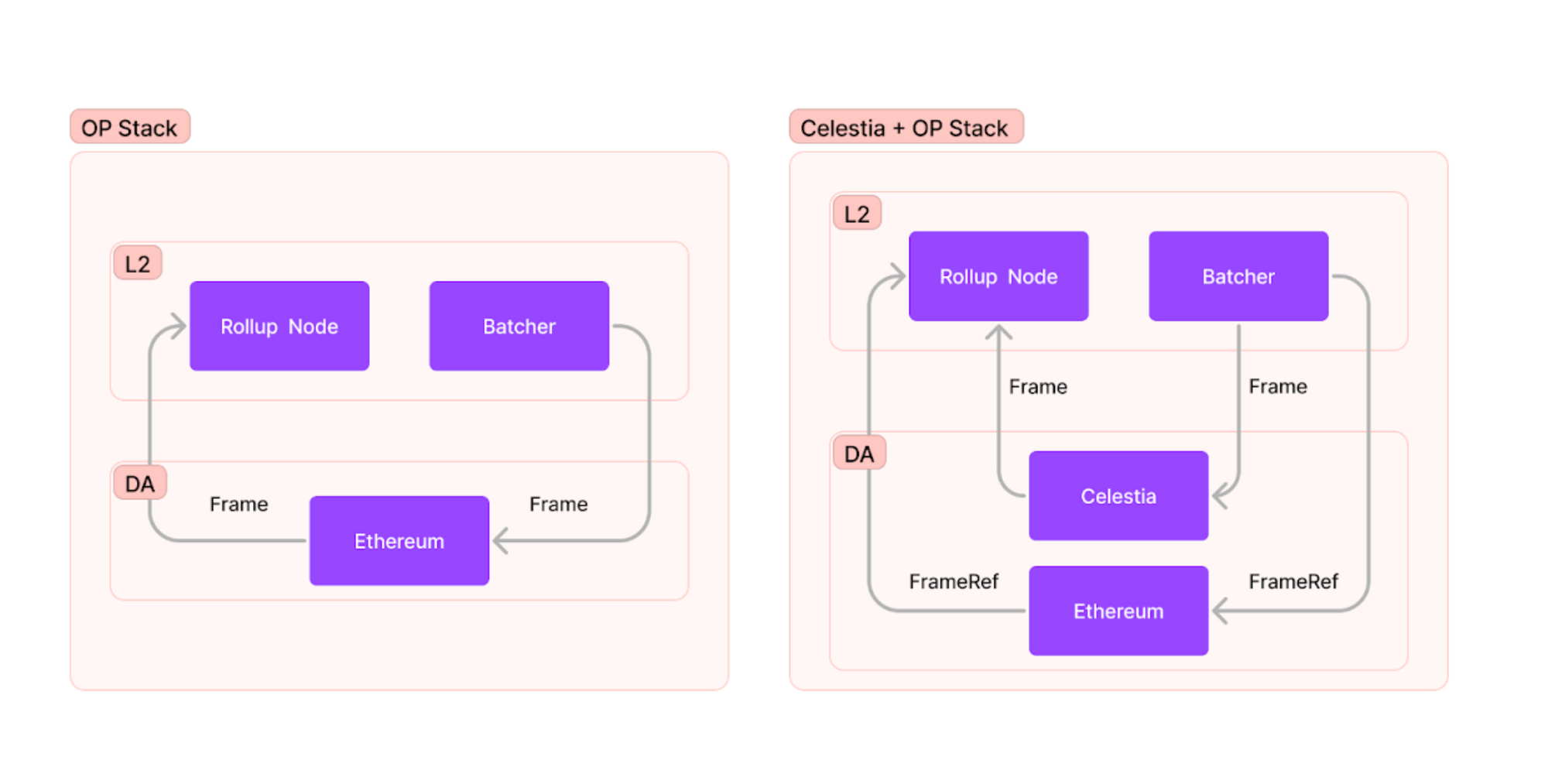Community-Driven Development: Introducing OP Stack Mods
OP Labs is excited to start highlighting OP Stack Mods, modifications or improvements to the OP Stack created by members of the Optimism and Ethereum communities, for community feedback.

Free and open source software is the beating heart of the Ethereum ecosystem. The ability to permissionlessly run and modify shared software systems is a key driving force behind the entire crypto industry. These same core principles informed the design of the OP Stack, the MIT-licensed, open source codebase that powers the Optimism Collective. If you can dream it, you can build it with the OP Stack.
Because the OP Stack is modular and entirely permissionless, developers across the Ethereum ecosystem are starting to create interesting modifications to the OP Stack all on their own. OP Labs doesn’t always have the capacity to take these additions into production, but like any truly decentralized ecosystem, a team’s capacity for review shouldn’t be a gating factor for inclusion to the OP Stack. That’s why we’re excited to start highlighting some of the potential OP Stack additions, which we’re calling OP Stack Mods, that are being built by builders in our community.
Understanding OP Stack Mods
An OP Stack Mod is a modification or improvement to the OP Stack created by members of the Optimism and Ethereum communities that OP Labs is highlighting for community feedback. By spotlighting Mods, we want to ensure that OP Stack developers get the actionable, real-world feedback on the tools they’ve created that they’ll need to eventually get a modification into production.
OP Stack Mods are similar to beta versions of a product, but are not guaranteed to become part of the OP Stack. Mods that fit a concrete need within the Superchain ecosystem may eventually become part of the OP Stack, but they’ll need your feedback to get to that point.
Introducing a Modular Data Availability Interface: an OP Stack Mod by Celestia Labs
As part of this announcement, we’re happy to share that Celestia Labs has been working on an OP Stack Mod that would put the data availability (DA) layer of the stack behind a more modular interface.
The upcoming Bedrock release of the OP Stack has paved the way for modularization of various components of the OP Stack, such as the Stack’s proof and execution layers. Building on this, Celestia Labs has independently created an experimental modification that modularizes the Stack’s DA layer by separating it from the ordering layer.
Although chains like OP Mainnet will continue to rely on the strong DA properties provided by Ethereum, an abstracted DA interface opens the door for new chains to be built using the OP Stack that host chain data on whichever platform best fits the chain’s needs. This would further expand types of applications that could make serious use of a blockchain.
This proposed interface would still use Ethereum for its consensus and ordering properties while allowing chains to use other DA providers, like Data Availability Committees or Celestia, depending on each chain’s desired security properties. For a broader overview of the proposed interface, see Celestia Labs’ technical overview.
Celestia Labs has provided the following diagram to demonstrate how this interface can be used to separate DA and ordering:

Provide feedback on the Modular DA Interface
Celestia Labs is looking for your feedback on its Modular DA Interface. They provided documentation for a demo integration of its proposed interface that uses Celestia as a DA provider. For the interface to be considered for inclusion to the OP Stack, it must be able to support many different kinds of data availability providers.
If you are interested in stress-testing an existing integration, Celestia Labs has kindly provided example documentation for running your own modified OP Stack chain that publishes data to a local development Celestia network. Aggressively publishing transactions to this system may help point out issues in the link between the DA provider and Ethereum.
If you are interested in expanding the capabilities of the OP Stack to support additional DA providers, it would be particularly useful to attempt to integrate your own DA provider using the proposed interface. Issues that you may have during this integration process will be highly valuable feedback to the Celestia Labs team. We are especially interested in Data Availability Committee integrations as well as more experimental approaches that host data on other blockchains that are typically not used for this purpose, like Bitcoin.
Help supercharge the OP Stack
OP Stack Mods are a testament to the power and potential of open source software stacks. These Mods not only foster creative solutions but also showcase the spirit of decentralization. We’re excited to be moving quickly towards the future where a majority of development on the OP Stack is driven by permissionless innovation within the Optimism and Ethereum communities.
OP Labs will be highlighting more OP Stack Mods as they appear and become ready for wider review. If you have a novel idea or want to work to supercharge the OP Stack, we invite you to have a world of fun hacking the Stack and releasing your own OP Stack Mods. When you’re ready for feedback, we’ll be here! After all, your contribution might shape the future of the Optimism Collective. 🔴✨

